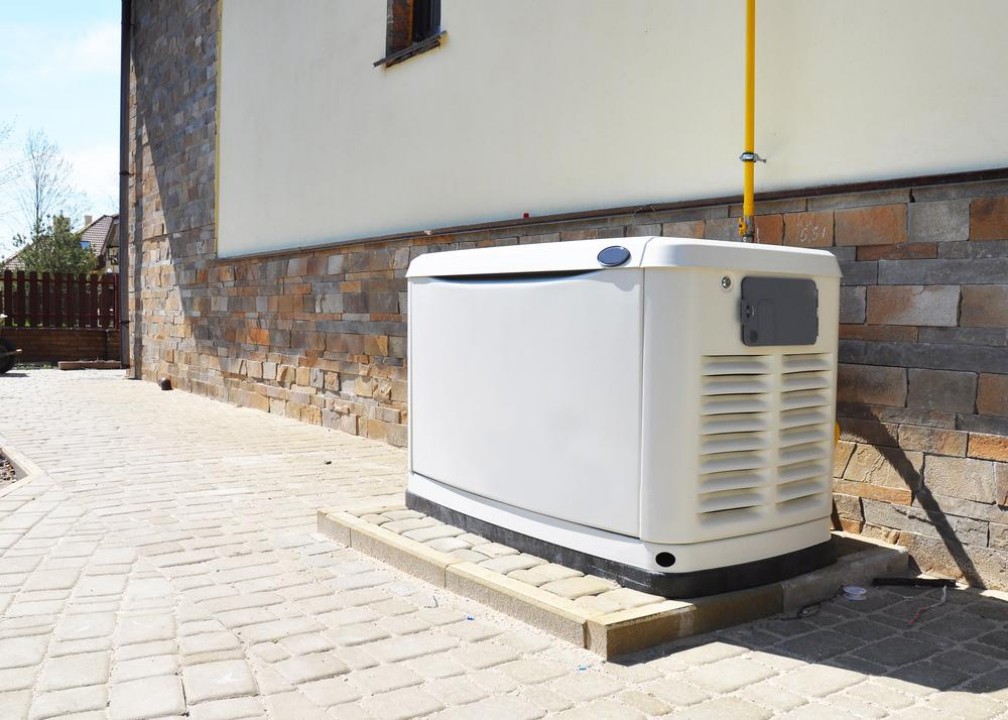Power outages can be stressful. Whether it’s a storm, unexpected power cuts, or other emergencies, having a reliable home backup generator can keep your home running smoothly. That’s why it’s important to find the best home backup generators that fit your needs. In this blog post, we’ll explore some of the top options available today, so you can feel confident and prepared for any outage.
What Is a Home Backup Generator?
A home backup generator is a machine that provides electricity to your home when the power goes out. It kicks in automatically (or manually if it’s a portable model) to keep your lights on, your refrigerator running, and even your air conditioner working.
If you live in Sonoma, where power outages and tough weather can happen often, having a dependable backup power source is crucial. A quality generator can really change your experience, helping you stay comfortable and safe during storms or outages. Imagine having lights, heat, and even your refrigerator running smoothly while others are in the dark. This means no more spoiled food or uncomfortable conditions for you and your family.
How to Choose the Right Generator for Your Home
Choosing the right generator is important to ensure you have reliable power when you need it. Here are some key factors to help you make the best decision:
1. Power Needs
First, think about what you need to power. Make a list of your essential appliances and systems, like refrigerators, heaters, and lights. Add up their wattage to see how much electricity you’ll need. This will help you pick a generator that can handle your power requirements without overloading.
2. Fuel Type
Generators can run on different types of fuel, including gasoline, propane, and natural gas. Here’s a quick breakdown:
- Gasoline:It’s often easy to find, but it can go bad over time.
- Propane:This fuel lasts longer than gasoline and is a good choice for long-term storage.
- Natural Gas:If you have a gas line, this is a convenient option because it’s always available.
3. Size and Portability
Consider how and where you’ll use the generator. Do you need a small, portable unit for occasional use, like camping or tailgating? Or do you want a larger standby generator that can power your entire home during an outage? Portable generators are great for flexibility, while standby generators offer automatic power when the grid goes down.
4. Noise Levels
Generators can be noisy, which may disturb your peace, especially at night. Look for models that are designed to operate quietly. Some manufacturers list noise ratings in decibels (dB), helping you choose a quieter option for your comfort.
5. Budget
Think about how much you want to spend. Smaller portable generators are usually more affordable, making them a great choice if you need power for short periods. On the other hand, standby generators that automatically turn on during an outage can be a larger investment but offer added convenience and peace of mind.
Why Invest in the Best Home Backup Generators?
Having a home backup generator comes with several benefits:
- Comfort: Keep your essential systems running, such as air conditioning or heating, even during outages.
- Preserve Food: Your refrigerator will stay on, ensuring that food doesn’t spoil during long outages.
- Peace of Mind: You won’t have to worry about being left in the dark or without important appliances when the power goes out.
How to Set Up Your Backup Generator
Here’s a quick guide to setting up a generator:
- Know Your Power Needs
Start by making a list of the important things you want to run during a power outage. This could include your refrigerator, lights, or medical equipment. Understanding your power needs will help you choose the right generator size. - Choose the Right Generator
Look for a generator that meets your power needs and fits your budget. There are different types of generators: portable and standby. Portable generators are usually less expensive and can be moved easily, while standby generators are fixed in place and can power your whole house automatically during an outage. - Installation
If you choose a standby generator, it’s best to have it installed by a professional to ensure safety and proper operation. If you go for a portable generator, make sure to set it up in an outdoor area with good ventilation. This helps prevent harmful exhaust fumes from building up inside your home. - Test the Generator
Before an emergency happens, take some time to test your generator. Run it for a little while to make sure everything works as it should. This way, you’ll feel confident that you’re prepared when the lights go out.
If you need more detailed guidance, check out our backup power options at Suntegrity Solar.
Be Prepared with the Right Backup Power
Having a backup generator is a smart choice to keep your home running smoothly during power outages. It ensures that you’re not caught off guard and can continue to use your appliances and stay comfortable no matter what. When selecting a generator, it’s important to consider your specific needs to find the best option for your home.
We understand how crucial reliable power is for your daily life. That’s why we offer not only top-quality backup generators but also flexible financing options to help you get the power solutions you need without breaking the bank.
If you need assistance in choosing the right generator or backup power solution, Suntegrity Solar is here to help! Don’t hesitate to reach out for more information or ask your questions in the comments below. Let’s work together to ensure you’re prepared for any power challenge!











